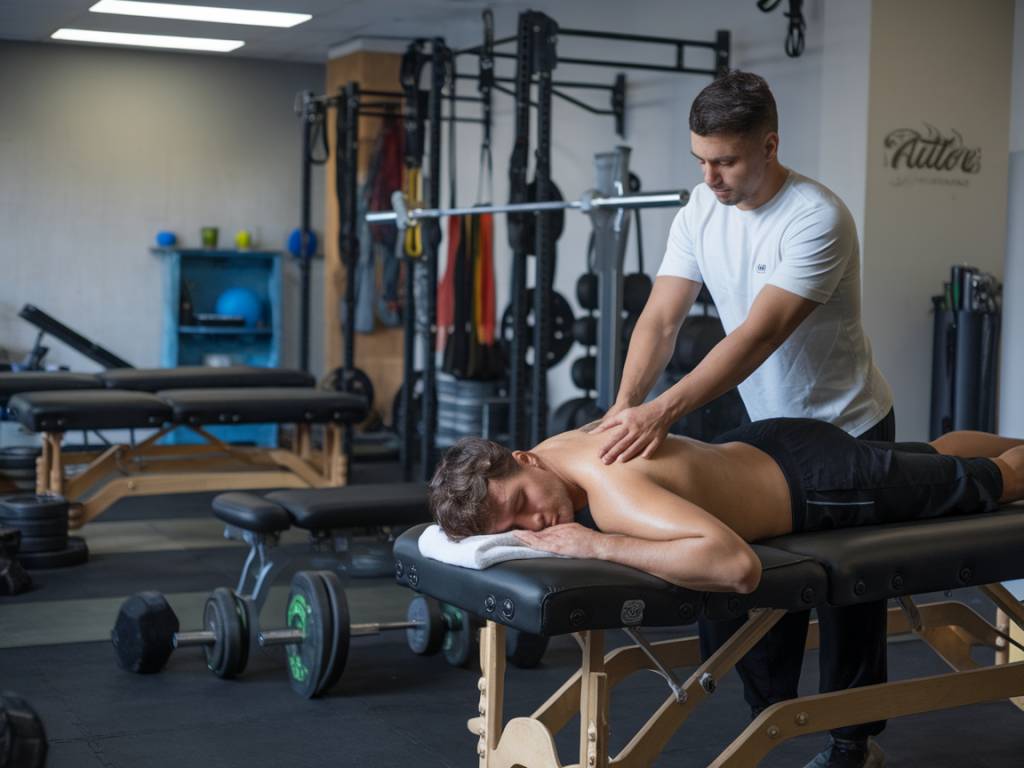The Critical Role of Sleep in Physical Recovery
Ever hit the gym hard or go on a long run, only to feel sore and drained the next day? That’s your body’s not-so-subtle way of telling you it needs rest. Sleep, often overlooked, is the magical repair shop where your body restores itself after physical exertion. But how exactly does this work? And, more interestingly, how can you optimize your sleep for better recovery? Let’s dive in.
What Happens to Your Body During Sleep?
Your body doesn’t simply “shut down” when you sleep—it enters an active state of repair and recovery. This is especially critical after physical activities like running, weightlifting, or even a long day of chores. When you’re snuggled up in bed, your body is hard at work performing tasks like:
- Muscle Repair: Tiny tears in your muscle fibers, caused by exercise, are repaired during deep sleep stages, building stronger, more resilient muscles.
- Hormone Regulation: Sleep boosts the secretion of growth hormone, a chemical translator that is essential for muscle repair and fat metabolism.
- Tissue Growth: Damaged tissues—whether from a sprain, strain, or a workout recovery—are restored during sleep.
- Nervous System Reboot: Physical activities strain your nervous system. Sleep provides time for your body to reduce inflammation and repair neural pathways.
With all this happening behind the scenes, it’s no wonder that cutting your sleep short can leave you feeling exhausted and less capable the next day!
How Sleep Stages Impact Physical Recovery
Sleep isn’t one-size-fits-all—it’s divided into stages, and each plays a specific role in recovery. Let’s break it down:
- Non-REM Sleep: This stage is all about basics—muscle repair, immune system strengthening, and cellular recovery. Deep, non-REM sleep is where the heavy lifting of physical restoration happens.
- REM Sleep: During this stage, your brain consolidates memories and stabilizes stress responses. Though it’s more associated with mental recovery, a relaxed and calm mind is essential for aiding physical recovery too.
Missing out on either of these stages? You’re shortchanging your body’s recovery process.
Signs That Poor Sleep Might Be Slowing Your Recovery
Are you waking up sore, sluggish, or still tired even after hours of shut-eye? Then poor sleep might be the culprit. Here are some telltale signs:
- Prolonged Muscle Soreness: Feeling those aches long after leg day? That’s a red flag.
- Weakened Performance: Struggling to hit your usual run pace or lift your regular weights? Inadequate sleep weakens physical output.
- Mood Swings and Irritability: Sleep deprivation messes with your hormones, leaving you cranky and unmotivated.
- Increased Illness: Your immune system suffers when you skimp on sleep, leaving you more susceptible to colds or other ailments.
How Much Sleep Do You Really Need?
We’ve all heard the classic “eight hours” recommendation, but when it comes to physical recovery, your specific needs may vary. Studies suggest that athletes or individuals heavily engaging in physical activity might need anywhere from 7 to 9 hours—or more during periods of intense training.
A handy rule of thumb? Listen to your body! Feeling refreshed and energetic? You’re probably hitting your sweet spot. Exhausted and sluggish? It’s time to re-evaluate those late-night Netflix binges.
Actionable Tips for Better Sleep and Recovery
Don’t worry; you don’t have to overhaul your lifestyle completely to enjoy the benefits of quality sleep. Small, practical changes can make a world of difference. Here’s how to get started:
- Create a Sleep Sanctuary: Keep your bedroom cool, dark, and free from distractions. Invest in blackout curtains or a white noise machine if necessary.
- Stick to a Routine: Going to bed and waking up at the same time every day trains your body to predict rest periods, improving overall sleep quality.
- Limit Screen Time: The blue light from screens can mess with your melatonin production. Try to switch off devices at least an hour before bedtime.
- Fuel Your Body Smartly: Avoid caffeine and heavy meals late in the evening. Instead, opt for sleep-friendly snacks like a banana and almond butter.
- Hydrate… But Not Too Much: Stay hydrated during the day but ease off the water intake closer to bedtime to avoid midnight bathroom trips.
- Incorporate Relaxation Techniques: Practices like meditation, deep breathing, or gentle yoga can help signal to your body that it’s time to unwind.
The Synergy Between Sleep and Exercise
Here’s the kicker: sleep and exercise have a circular relationship. Where sleep aids recovery, exercise can actually improve sleep quality. Physically active individuals often experience deeper sleep due to better energy regulation. However, timing is key—exercising too close to bedtime may leave you feeling wired instead of tired.
Pro tip? Schedule your workouts earlier in the day if possible. And if evenings are your only option, wrap them up at least 2–3 hours before hitting the sack.
A Real-Life Example: Meet Emma
Emma, a 35-year-old marathon enthusiast, was struggling to improve her personal best time. Despite endless hours of training, she constantly felt fatigued and stuck in a plateau. The problem? Emma was only sleeping five hours a night due to her busy schedule.
Once she made sleep a priority—gradually upping her nightly rest to 8 hours—Emma noticed incredible changes. Her runs felt smoother, recovery from long-distance training became faster, and even her mood lifted. Within three months, she crushed her old marathon record by a solid 10 minutes!
If Emma can do it, why not you?
Final Thoughts: Make Sleep Your Best Workout Buddy
When it comes to physical recovery, sleep isn’t just “nice to have”—it’s essential. Think of it as the invisible personal trainer that works behind the curtains, rebuilding your body and setting you up for success in your next activity.
So, whether you’re a gym junkie, a weekend warrior, or simply looking to feel your best, prioritize sleep. Your body—and your performance—will thank you.
